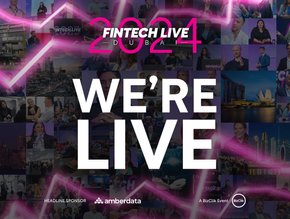Redefining Payments: Digital Assets and the Future

To evolve beyond transactions means amping up volume and creating value. For many financial institutions, whether it be banks, issuers, acquirers, or payment networks, the path forward appears uncertain. Ashish Bhatnagar, Head of Cards & Payments, at Cognizant, theorises that two forces are set to reshape payments: ‘everywhere commerce’ and ‘anything of value’, where a central question for banks and payment providers is how to make digital assets tradeable through networks. Payments providers need to start looking into the future and experimenting with new stores of value. But what do those next steps look like for payment providers to move beyond transactions and usher in the future of payments?

Preparing for new stores of value
Central bank digital currencies (CBDCs) are emerging rapidly, yet regional maturity levels vary widely. Transactions using China’s digital yuan hit 1.8 trillion yuan (US$249.33 billion) at the end of June last year, cementing the country’s role as a leader among countries that are developing digital tokens issued by central banks.
Latin America and the Caribbean are also at the forefront of the adoption of digital currencies, with the Bahamas and Jamaica having gone live with CBDCs. Payments played an important role in Jamaica’s rollout of its digital currency: The first 100,000 customers who signed up for the CBDC via the digital wallet and transaction platform Lynk received $2,500 in JAM-DEX.
"Banks need to be ready to move beyond experimentation and make bold moves for early market advantage. Smart contracts are set to possibly revolutionise financial transactions. The self-executed programs reside on distributed ledgers and are executed based on pre-defined encoded rules, automatically enforcing and executing transactions on a blockchain. Programmable payments leverage these digital contracts, enabling automated, conditional transfers of funds. For example, property ownership change contracts can be programmed and executed automatically. Once the buyer pays the seller, the smart contract can automatically change the asset’s ownership," says Ashish Bhatnagar.
Countries are also experimenting with offline payments; China is integrating its digital yuan app with “super SIM cards” that process payments even when the phone is turned off. Conversational payments can also ensure seamless transactions even in areas with limited network access by allowing users to make offline payments using natural language interactions and NFC technology.
“Everywhere, anything” of value isn’t evolving without industry concerns. Questions about new stores of value range from the viability of the business cases to concerns about privacy, sustainability, and network interoperability. Regulatory intervention also looms. How quickly will regulators respond to the changing landscape? So far there’s been little discussion about how to protect digital assets. In addition, environmental impact remains a key consideration: the world’s second-largest cryptocurrency, Ethereum, successfully slashed its emissions by 99.99% after an unprecedented experiment to ditch power-hungry mining in favour of a new approach.
Still, there’s no end date to the exploration of new stores of value. It’s the nature of technology and innovation to bring new ideas to market. They offer financial institutions a clean-slate advantage as they learn from more foundational technology products to modernise their core. Equally important, experimenting with new stores of value positions banks to serve the GenY and GenZ banking customers of the future.
The upshot? Banks and the customers they serve operate in two worlds: One is the current world of fiat currencies, card payments, and e-commerce, and the other is the emerging world of new stores of value. The first isn’t going to go away any time soon, even as the emerging second world steadily takes shape.
Looking to the future
Ashish Bhatnagar says, "Enabling and supporting new payment methods like crypto, CBDCs, and NFTs are key actions for banks, issuers, and acquirers. Payment networks’ future roadmap should include exploration of the expanded definition of money, which is anything of value. In addition to building capabilities to support new payment methods, networks need to understand their role and prepare for open, decentralised digital ecosystems for pan-sector economic transactions.
"To navigate the fast-evolving payments technology landscape, all financial institutions need to experiment with newer technologies. The experiments offer two important benefits. First, they provide valuable insights into the technologies’ feasibility, challenges and optimisation opportunities. Second, they can help drive innovation agendas and enable companies to stay competitive.
"As financial institutions explore new stores of value, they must prioritise stability to ensure the asset’s value remains relatively steady over time. Integrity and trust are paramount, necessitating robust security measures, with strong governance and user adoption strategies also critical. And don’t forget, this all rests on a viable business case, providing a tangible value proposition. Forge a path that fits your organisation. The optimal path to move beyond transactions will look different for every bank and payment provider. The first step is always to establish a baseline by assessing the organisation’s true maturity: don’t confuse true maturity with one-off successes. Instead, growth starts by building strong foundational capabilities with modernisation at the heart of the transformation agenda.
He suggests three guidelines to keep in mind to ensure your organisation stays at the forefront of payment innovation:
"Firstly, scale fast or exit. The payments business is about economies of scale. With margins shrinking globally and legacy run costs increasing, financial institutions should assess notthe long-term viability of their payments business to either scale or exit. The decision to scale will mean strategic shifts to growth through avenues such as partnerships for improved product distribution like embedded payments; pursuit of M&As that provide sector or geography advantage; and evaluation of platform-based service models.
"Secondly, double down on efficiency. Running better means employing all the levers to drive efficiency. This is where firms should critically evaluate their IT estate to hollow out the core and deploy automation and generative AI to optimise processes. For strategic areas, they can also launch “speedboats” to replace legacy super-tanker systems over time. Deepfakes are another area where they can use technology to their advantage. Using good AI to counter bad AI is becoming imperative.
"Finally, Be bold. As financial institutions prioritise payments as a growth area, they need to step up innovation within and outside the organisation. Setting up innovation labs dedicated to payments enables firms to rapidly develop and test their ideas. Future success will require a bold mindset where firms intuitively imagine and build new customer journeys."
**************
Make sure you check out the latest edition of FinTech Magazine and also sign up to our global conference series - FinTech LIVE 2024
**************
FinTech Magazine is a BizClik brand
- Mastercard: Powering the Digital Economy With Smarter TechFinancial Services (FinServ)
- Walmart Majority-Owned Fintech, One, Launches BNPL ServiceDigital Payments
- Dynamic Yield: The Power of Recommendations in FinservFinancial Services (FinServ)
- In-depth: Worldcoin, a Sam Altman Co-Founded Crypto ProjectCrypto






